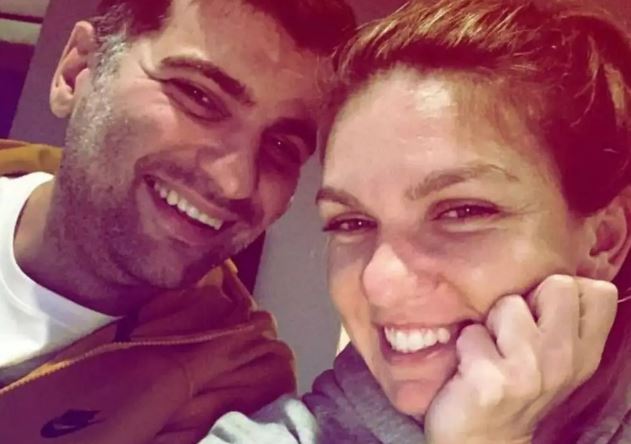“CU Boulder Student Dies in Alcohol-Related Incident
CU Boulder Student Michael Hoffman Dies in Alcohol-Related Incident
A Shocking Loss at CU Boulder
In late August 2021, the University of Colorado Boulder (CU Boulder) was shaken by the death of Michael Hoffman, a 21-year-old student who tragically passed away after an alcohol-related incident. His death not only affected his immediate family, friends, and peers but also raised serious concerns about substance abuse, mental health, and the culture surrounding college life.
Michael Hoffman’s death was a reminder of the potential dangers of excessive alcohol consumption and the importance of better intervention and support for students facing these challenges. This article delves deep into the circumstances of Hoffman’s death, the investigation, the reaction from CU Boulder and the broader community, and the societal implications of alcohol use among college students.
Background: The Life of Michael Hoffman
Michael Hoffman was an accomplished student at CU Boulder, known for his academic dedication and friendly nature. Originally from Denver, Colorado, Michael was pursuing a degree in Business Administration with a focus on marketing. He had a reputation for being a hard worker, and many of his professors and peers admired his dedication to his studies.
Outside of his academic life, Michael was passionate about sports, particularly basketball, and he enjoyed hiking in the nearby Rocky Mountains. His family described him as a loving son and brother who had always been full of life. However, like many young adults, he struggled with the pressures of academic life, social expectations, and personal challenges. These pressures, combined with a growing social scene that often centered around alcohol, would later play a significant role in his untimely death.
The Incident: A Tragic Night in Boulder
On the night of August 28, 2021, Michael Hoffman went out with a group of friends to celebrate the start of the academic year. It was a typical Friday night at CU Boulder, with students gathering at various parties, bars, and off-campus apartments. As the evening wore on, Michael’s drinking became more excessive. His friends reported that he had consumed large amounts of alcohol, a factor that would ultimately play a role in the tragedy.
At some point during the night, Michael was found unconscious outside an off-campus apartment complex. His friends immediately called 911, and paramedics arrived on the scene within minutes. Despite their best efforts, Michael was unresponsive and had to be rushed to the hospital. Doctors later confirmed that he had suffered from acute alcohol poisoning, which led to his death in the hospital shortly thereafter.
The circumstances surrounding the event were deeply troubling. Michael had reportedly been seeking prescription stimulants earlier that evening, which added another layer of concern to the incident. This part of the story raised questions about how students were using substances in combination with alcohol and the impact this might have had on Michael’s ability to handle the alcohol he consumed.
The Investigation: Unraveling the Causes
The Boulder Police Department launched a thorough investigation into Michael’s death. The focus was not only on the cause of death—alcohol poisoning—but also on the events leading up to the tragedy. Investigators interviewed witnesses, including Michael’s friends who were with him that night, and examined the specifics of his behavior and actions during the hours before he was found unconscious.
The police learned that Michael had a history of substance use, particularly alcohol, but there was no evidence to suggest foul play or intentional harm. The investigation highlighted that Michael’s death was, unfortunately, part of a larger trend of alcohol-related fatalities among college students. The combination of peer pressure, the normalization of heavy drinking in social circles, and the stress associated with academic and social life were cited as contributing factors.
The Aftermath: Community Reactions and Impact
Michael Hoffman’s death reverberated through the CU Boulder community. His friends and family were devastated, and many students began to reflect on their own drinking habits and the culture that allowed such excessive alcohol consumption to go unnoticed or unchecked. His family, in particular, was devastated by the loss of a bright young man with so much potential. His parents, although heartbroken, used the opportunity to speak out about the dangers of alcohol abuse and the need for better education and support systems for college students.
In the days following the incident, CU Boulder President Mark Kennedy issued a statement expressing condolences to Michael’s family and pledging that the university would take steps to address the underlying causes of such tragedies. University officials emphasized that student safety was a priority and that they would look into how to better address the social and environmental factors contributing to substance abuse.
Campus organizations, including student government, mental health advocates, and groups focused on alcohol awareness, immediately began organizing vigils, discussions, and awareness campaigns to address the issue of excessive drinking. These efforts included hosting forums with students, faculty, and mental health professionals to discuss the pressures faced by college students and how to manage these pressures in a healthy way.
The Role of Alcohol in College Life: A Deep-Rooted Problem
Michael Hoffman’s tragic death is part of a much larger issue that affects college campuses across the United States. Alcohol consumption has long been a part of the college experience, but the normalization of binge drinking and the dangerous consequences it can have are increasingly coming under scrutiny.
Statistics show that alcohol-related fatalities are one of the leading causes of death for college students in the United States. According to the National Institute on Alcohol Abuse and Alcoholism (NIAAA), approximately 1,500 college students die annually as a result of alcohol-related incidents. Additionally, many more students experience injuries, assaults, and long-term health problems due to alcohol consumption.
The culture surrounding alcohol in college settings is often fueled by peer pressure, social media, and the desire for acceptance






